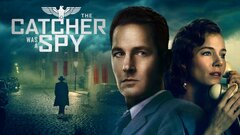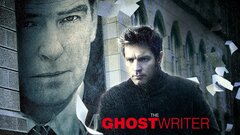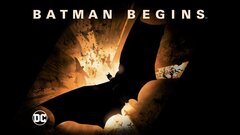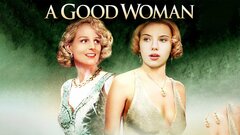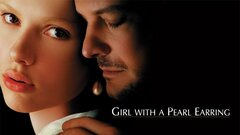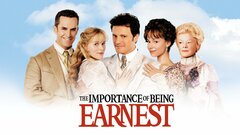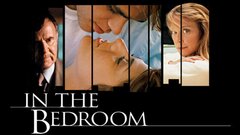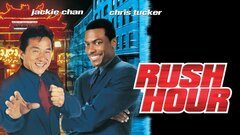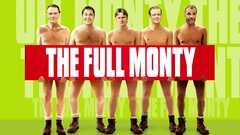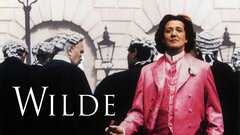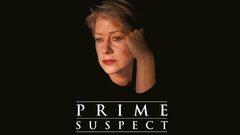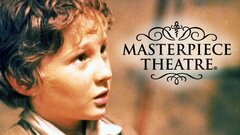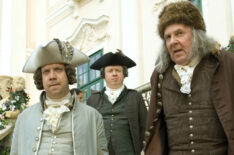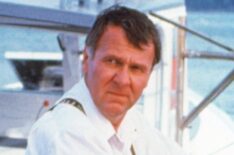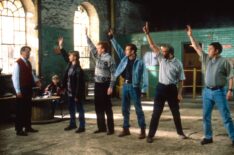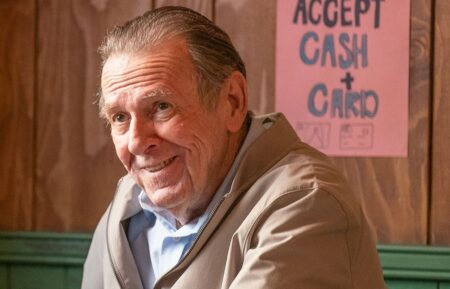Throughout his illustrious acting career, which included an Oscar-nominated performance for "In the Bedroom" (2001), Tom Wilkinson enjoyed wide prominence. True to his working class roots, Wilkinson remained relatively low-key and distinctly non-Hollywood, despite having starred in some of the new millennium's most significant films.
He made his breakthrough the previous decade, however, starting with Ang Lee's "Sense and Sensibility" (1995) and followed with "The Full Monty" (1997), a surprising hit in the United States despite its origins across the pond. He went on to play major roles in a wide array of films, from small independents like "In the Bedroom" and "The Importance of Being Earnest" (2002) to Hollywood blockbusters like "Rush Hour" (1998) and "Batman Begins" (2005).
Wilkinson delivered a memorable turn as the inventor of an experimental memory-erasing technique in "Eternal Sunshine of the Spotless Mind" (2004) and was a high-profile corporate attorney who loses his mind in "Michael Clayton" (2007). On cable, he was delightful as a roguish Benjamin Franklin in the acclaimed miniseries "John Adams" (HBO, 2008) and had an award-worthy turn as patriarch Joseph Kennedy in the miniseries "The Kennedys" (ReelzChannel, 2011), all which affirmed his status as one of acting's most respected and versatile talents.
Born on Dec. 12, 1948 in Leeds, West Yorkshire, England, Wilkinson moved with his family to Canada when he was four years of age. Instead of finding the better life he sought, however, his father wound up working as an aluminum smelter for six years before returning the family to England. Once settled in Cornwell, his parents ran a pub while the young Wilkinson wandered aimlessly through school.
But after his father died, his mother relocated the family back to Yorkshire, where Wilkinson met Molly Sawdon, headmistress of King James' Grammar School at Knaresborough. Sawdon recognized Wilkinson's lack of direction and decided to make something of the lad before it was too late. He was taught proper etiquette while being exposed to culture, particularly the theater. Soon Wilkinson was back at King James, directing his first play, Eugene Ionesco's "Bald Soprano." Wilkinson eventually took up English and American studies at Kent University before enrolling at the Royal Academy of Dramatic Art in the early 1970s.
Shortly after graduation, Wilkinson was hired by Richard Eyre, head of the Nottingham Playhouse, and performed in a variety of plays, from Brecht to Shakespeare. After sojourns to theaters in Oxford, Birmingham and Edinburgh, Wilkinson joined the Royal Shakespeare Company and was singled out for his supporting work in a 1981 production of "Hamlet."
Strong notices for his starring turn as poet T.S. Eliot in the 1983 biographical drama "Tom and Viv" at the Royal Court Theatre led to a role opposite Vanessa Redgrave in "Weatherby" (1985). Back on stage, he appeared in an acclaimed revival of Ibsen's "Ghosts" in 1986, but decided to vacation in Bali following the production, leading to 18 months of no work. Wilkinson ultimately chose to eschew the theater to concentrate on film and found himself perfectly cast as a butcher's son from Leeds with aspirations to the office of prime minister in "First Among Equals" (1987), an adaptation of Jeffrey Archer's politically-themed novel.
By 1988, he was being seen on American television screens, first as Ernest Simpson, the husband who loses his wife Wallis to the future Duke of Windsor in "The Woman He Loved" (CBS, 1988), then in a retelling of the famed Anne Frank story, "The Attic: The Hiding of Anne Frank" (CBS, 1988). Wilkinson was next featured as the former husband of Inspector Jane Tennison (Helen Mirren) on the first series of the popular detective series "Prime Suspect" (PBS, 1992), then headlined two installments of "Resnick" (BBC, 1991-92), based on a series of detective novels by John Harvey.
In 1994, Wilkinson was an older priest carrying on a clandestine love affair with his housekeeper in the controversial drama, "Priest." Following his turn as Mr. Dashwood in "Sense and Sensibility," Wilkinson had a villainous turn as the brutal head of an African engineering project in "The Ghost and the Darkness" (1996).
Wilkinson followed his BAFTA award-winning turn as the reluctant choreographer of a motley crew of male strippers in "The Full Monty." Wilkinson played the crew's choreographer whose taste in dancing falls more on the side of ballroom than exotic.
After an excellent turn as the nefarious Marquess of Queensberry in the biopic "Wilde" (1997), Wilkinson had a rare romantic lead in the period drama "The Governess" (1998), for which he actually went the full monty. He played a 19th-century inventor who starts an affair with his home's caretaker (Minnie Driver) only to later steal her ideas for photography.
Continuing to make a name for himself, Wilkinson delivered a fine comic turn as a moneylender-turned-theater producer in the Oscar-winning "Shakespeare in Love" (1998). After reuniting with Ang Lee for a small role in "Ride With the Devil" (1999), Wilkinson was the model of restraint as General Cornwallis in "The Patriot" (2000), a Revolutionary War epic about a peace-loving patriot (Mel Gibson) who seeks revenge against the British for murdering his son. Meanwhile, he returned to the London stage for his first major role in more than a decade starring opposite Julia Ormond in David Hare's "My Zinc Bed," a look at love, loss and addiction through the eyes of a young, but idealistic alcoholic.
Back on the big screen, Wilkinson gave the performance of a lifetime playing a Maine doctor struggling with grief and subsequently disintegrating marriage after the murder of his son in the chamber drama, "In the Bedroom" (2001). Actor Todd Field's directorial debut was screened at the Sundance Film Festival in January and was rapturously received, with Wilkinson and co-star Sissy Spacek cited with a Special Jury Prize for their raw, nuanced performances.
Even that early in the year, the buzz for their work was so high, it sparked speculation of end-of-the-year critic prizes and possible recognition from the Academy, who duly noted the actor's work and included him on the list of Best Actor Oscar nominees. Moving from the sublime to the ridiculous, Wilkinson took a couple steps down by appearing in the Martin Lawrence comedy "Black Knight" (2001), which reduced him to playing a drunken, down-on-his-luck knight.
He fared much better in his next outings, first as Dr. Chausible in the remake of Oscar Wilde's superior comedy "The Importance of Being Earnest" (2002), and then as Sir Robert Vansittart in the acclaimed HBO telepic, "The Path to War" (2002). Wilkinson's next television role was as critical to his career as his Oscar-nominated turn in "In The Bedroom."
In writer-director Jane Anderson's "Normal" (2003), Wilkinson delivered a painfully real performance as Roy Applewood, a Midwestern husband and father who sends his family and friends into a tailspin when he announces his intention to undergo a sex change operation, although his shocked wife (Jessica Lange) attempts to support his decision. His performance earned Wilkinson a wealth of critical accolades, including Emmy Award and Golden Globe nominations.
Next up was a turn as the artist Johannes Vermeer's (Colin Firth) wealthy patron Van Ruijven, who has an appetite for paintings of the "Girl with a Pearl Earring" (2003). Effortlessly turning on a convincing American accent, Wilkins delivered yet another subtle and nuanced performance in "Eternal Sunshine of the Spotless Mind" (2004) as a doctor who administers a memory-erasing procedure to remove a failed romance from the mind of a heartbroken patient (Jim Carrey).
Back across the pond, he appeared in "Stage Beauty" (2004) as London theater owner Thomas Betterton, who embraces the shift from having men play women's roles and is impressed by the stage's first female actress (Claire Danes). Wilkinson followed with a brief, but deft turn as the corrupt Gotham City crime boss Carmine Falcone in the hugely popular reboot of the Dark Knight's film franchise "Batman Begins" (2005). His next role was as Father Moore, the priest who performed the controversial exorcism that resulted in the death of a young girl in the character-driven thriller "The Exorcism of Emily Rose" (2005).
Following a supporting role in "The Last Kiss" (2006), a coming-of-age drama about a group of thirty-somethings struggling to adapt to adulthood while their parents cope with middle age, Wilkinson played the illustrator for and only friend of a misanthropic children's author (Billy Crudup) in the low-budget dark romantic comedy, "Dedication" (2007).
In "Michael Clayton" (2007), he played the star attorney at a top corporate law firm in New York who suffers a sudden breakdown and tries to sabotage a substantial, but ultimately questionable case, calling for the firm's in-house fixer (George Clooney) to solve the problem despite his conflicted conscience. Wilkinson's dynamic and realistic performance echoed Howard Beal's delusional ranting in "Network" (1976), leading to wide critical praise and a Golden Globe nomination for Best Performance by an Actor in a Supporting Role in a Motion Picture. He was also honored with a nod from the Academy, earning an Oscar nomination for Best Supporting Actor.
Wilkinson continued delivering well-crafted performances the following year. He portrayed American patriot and Founding Father Benjamin Franklin in the seven-part miniseries "John Adams" (HBO, 2008), then played James Baker, chief legal advisor for George W. Bush, in the TV-movie "Recount" (HBO, 2008). He won a Golden Globe for Best Supporting Actor in a Series, Miniseries or TV movie for his work in the former.
Following a co-starring turn opposite Julia Roberts and Clive Owen in Tony Gilroy's "Duplicity" (2009), he delivered yet another award-worthy performance on "A Number" (BBC2, 2009), in which he played a father who is confronted by the twin sons (Rhys Ifans) that he cloned decades before. For his work on the latter, he earned a SAG nomination for Outstanding Performance by a Male Actor in a Television Movie or Miniseries.
After playing a Harvard Law professor and suspected CIA agent in the Roman Polanski thriller "The Ghost Writer" (2010), he portrayed a Mossad agent in the acclaimed espionage thriller "The Debt" (2011), starring Helen Mirren, Ciarán Hinds and Sam Worthington.
Wilkinson portrayed Kennedy clan patriarch Joe Kennedy in the controversial miniseries "The Kennedys" (ReelzChannel, 2011). Because the series was written and directed by an unabashed conservative, critics heaped scorn on the project for historical inaccuracies and unflattering portrayals even before a single frame was shot. Once the miniseries was finished, however, original broadcaster The History Channel refused to air it amidst rumors that the Kennedy family put pressure on the network.
Several major cable outlets declined to purchase the rights until up-and-coming network ReelzChannel snagged the film. Though the final product did contain a number of historical issues, the performances were top notch and the content itself was far from the political hit job some expected. For his performance, Wilkinson earned an Emmy Award nomination for Outstanding Supporting Actor in a Miniseries or Movie.
Meanwhile, the actor co-starred opposite Robin Wright and Evan Rachel Wood in Robert Redford's conspiracy drama, "The Conspirator" (2011), while playing the stern, wealthy publishing father of a 28-year-old ne'er-do-well (Seth Rogen) who becomes a masked crime fighter in "The Green Hornet" (2011). After playing a former Mossad agent in the espionage thriller "The Debt" (2011), Wilkenson had a cameo as an IMF secretary in the hit sequel "Mission: Impossible - Ghost Protocol" (2011).
By Shawn Dwyer







